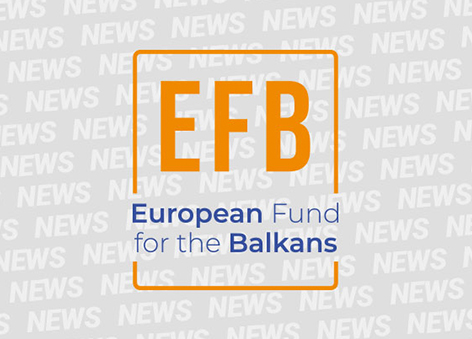
16.10.2015 All News
After Brussels and Belgrade, Sarajevo was the third stop on the map for the presentation of the issue paper “Fortress Europa and the Western Balkans as its soft underbelly”, written by the public policy analyst and crisis expert Sanel Huskic from Bosnia and Herzegovina.
“The idea of this report is to initiate discussion among the representatives of the public institutions, the NGO sector and the journalists, since it is a relevant subject that concerns us all. This issue paper was already presented in Belgrade and Brussels and we hope that it will influence the decision-makers in the WB region and EU to find a mutually accepted solution of the refugee crisis” stated Igor Bandovic from the European Fund for the Balkans.
Joined forces and resources, a unified standpoint in the negotiation with the EU and harmonised strategies and action plans are some of the recommendations that were repeated as imperative in solving problems like the refugee crisis, populism of the political leaders and tensions between the neighbours in the region.
The presentation of the EFB issue paper and the roundtable discussion which had Igor Bandovic (Senior Programme Manager, European Fund for the Balkans), Sanel Huksic (author of the issue paper and crisis expert), Ivana Dragicevic (Journalist, N1 Television, Croatia) and Isma Stanic (Chief of Bosnia and Herzegovina's Department for Refugees of the Ministry for Human Rights and Refugees) as speakers, also involved the media representatives from the local and regional newspapers and TV stations as active participants.
Ivana Dragicevic, a journalist from the N1 Zagreb, who has been working on the subject of refugees for a decade, shared her view that the countries from the Western Balkans can be creators of positive politics, based on their personal experience on this issue.
“Syria is a warzone for almost five years now and we should all accept the fact that is expected and normal for the people to flee from their countries and look for possibilities for better life. We should all look at this situation as a reality that will continue in the future. Croatia and Slovenia as EU countries are expected to be leaders in the initiatives of the Balkan countries and I hope that will be the case. At the same time, the media should focus on objective reporting, because the public should be well-informed about the gravity of this situation and get interested in the EU matters which have direct consequences over the region,” she said.
More than 350,000 refugees entered EU as of August 2015, and 280,000 during the course of 2014. According to the International Organization for Migration (IOM), 62% of the refugees are from Syria, Afghanistan and Eritrea, and the others come from Libya, Sudan, Pakistan, Nigeria, Kosovo and Iraq. Until now, 350 000 have crossed the borders illegally and it is expected that by the end of the year there will be more than a million new refugees.






